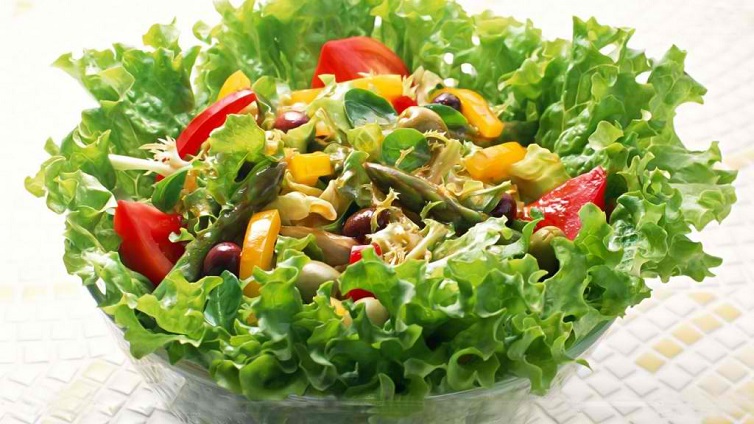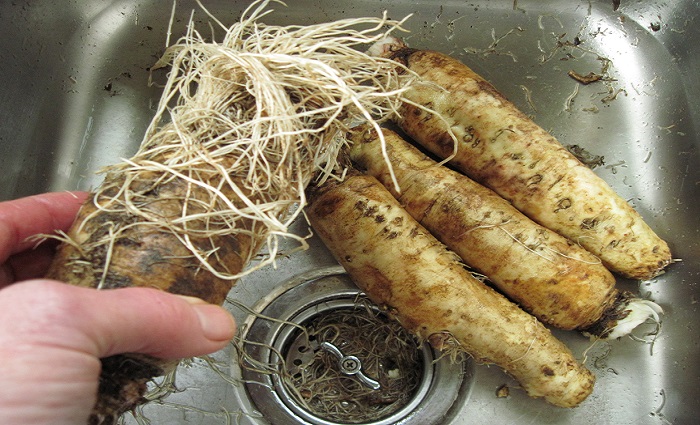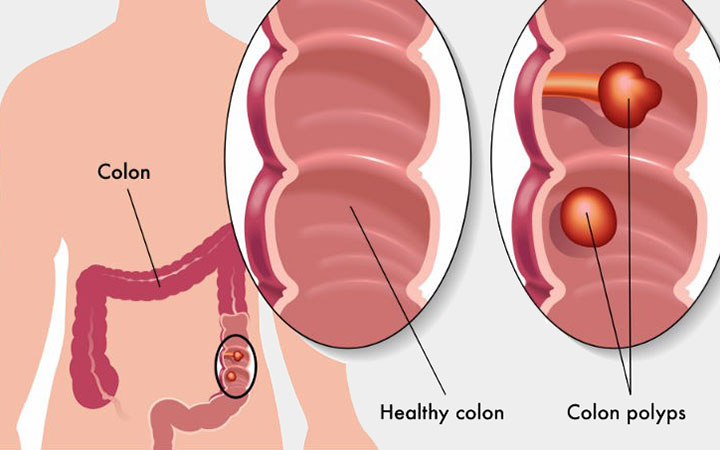Polyps, on their own, are usually harmless and have no symptoms. Most people don’t even know whether they have polyps because of this. Polyps are a clump of cells that form in the lining of just about any part of the body. For instance, if they are found in the colon, then they would be called colon polyps. While they might be harmless at first, if they are left alone and untreated for too long, they can begin to develop into colon cancer. If this type of cancer is found in its later stages, it is often fatal. Out of the types of polyps that can form in your colon, the neoplastic ones tend to have greater chances of becoming cancerous. The larger the polyp, the higher the chances are that cancer is developed. Typically, you are at a higher risk for polyps when you pass age 50, are overweight, smoke, or have a history of colon polyps or cancer. With a proper diet, you can reduce the chances that you develop polyps in the first place.
Food & Nutrition Diet (Meal Plan) for Colon Polyps
#1 Recommended Breakfast Diet for Colon Polyps

The best thing that you can do for yourself to prevent colon polyps is to increase the amount of fiber that you eat as well as increasing the amount of fruits and vegetables that you put on your plate. In the morning, you should turn to meals such as bran cereal with apples or strawberries. You could also consider eating some oats and add some berries, bananas, pears, or apples to the oats. The oats could be in the form of oatmeal or granola if you are in the mood for it. Whole-grain wheat is also something to look for, meaning that whole-wheat toast or bagels is a wonderful option for a breakfast meal. To add even more fiber to that, you could consider adding some berry jam or jelly to it.
#2 Recommended Lunch Diet for Colon Polyps

After breakfast, there are a few different routes you could go. You could continue eating some whole-grain foods, such as whole-wheat spaghetti. On the other hand, if you want to add some vegetables to your diet, you have several options. Asparagus, carrots, potatoes, and most other root vegetables are wonderful solutions. If you really want to spruce up your dish, you could consider going for a dish such as tempeh. Tempeh is a dish that comes from Indonesia. Simply put, it is a controlled process of culturing and fermenting soybeans and putting them into a cake-like form. Tempeh has about seven grams of fiber per half cup, which is incredibly high, given that the recommended intake is between 25 and 30 grams per day.
#3 Recommended Dinner Diet for Colon Polyps

A high-fiber dinner is going to contain a lot of vegetables. This is good because this means that you will have quite a few options when it comes to choosing what the sides of your dinner would be. Nearly every root vegetable is going to have a notable amount of fiber in it as are most green vegetables. In addition to this, most fruits have fiber in them as well. Beans, peas, and soybeans all have a good amount of fiber in them. If you want to spice up the meat of your dinner with fiber, adding onions, garlic, and leeks to any meat dish will give it some more fiber. These vegetables all have some degree of fiber in them whether it is prebiotic-soluble fiber, soluble fiber, or insoluble fiber. All these fibers are good for fighting off the chances of colon polyps.
#4 Recommended Snacks Diet for Colon Polyps

You have a few choices to make when it comes to snacks that have high amounts of fiber in them. Popcorn, if it is unflavored and unsweetened, is a wonderful source of fiber. If you really do not feel that you can eat unflavored popcorn, you can add a very light sprinkling of salt to it. You can also consider nuts and seeds as an option for snacks. Pumpkin and sunflower seeds are popular snacks in many areas and there are many different nuts that you can consider for a snack.
#5 Recommended Drinks for Colon Polyps

Fiber and liquids in the same glass cup don’t mix very well. If a drink had high amounts of fiber in it, it wouldn’t be a very good drink at all. Instead, you should focus more on upping your fruit and vegetable intake for your drinks. Fruit and vegetable juice that has few or no added sugars is the best way to go when picking out drinks that reduce the chances of developing colon polyps of any type. A juice that has both fruits and vegetables in it is an even better choice.
#6 Recommended Herbs for Colon Polyps

There are three different herbs you will want to look at for prevention of colon polyps: psyllium husks, chicory, and agave. Psyllium husk supplements are a common herbal medicine for digestive issues and mild diarrhea. It is often used as a supplement for fiber for people who need a high-fiber diet. Chicory is an herb that is used in several ways. Whether its leaves are used in a salad or its roots are used as a coffee, it can be a source of fiber. Agave, which is a plant that has had many purposes throughout culinary history, can also be a source of fiber for some people. All these plants and herbs can produce fiber in some degree, making it worth checking out if you want to prevent colon polyps from developing.
#7 Recommended Fruits for Colon Polyps

There are several fruits that can be eaten to prevent colon polyps from developing. Berries, plums, apples, bananas, and pears all have soluble fiber in them. This fiber is used by the bacteria in the colon as a source of food and nourishment, meaning that it can keep your colon even healthier than normal. The skin of apples, bananas, and avocados contains insoluble fiber, which will retain water. The water retention promotes regular bowel activity, which will keep your gut (colon included) in good health as well. Having a mix of both these fibers is good to promote better gut and colon health in general. A healthy colon is one that is not going to develop polyps nearly as often as an unhealthy one.
#8 Recommended Vitamin/s for Colon Polyps

There aren’t necessarily many vitamins that are specifically designed for colon polyps. However, there are some B vitamins that promote good digestive health, which is something that you will want when you are trying to keep your colon in its best condition. More specifically, Vitamin B1 is good for digestive health. You can find Vitamin B1 in fruits and vegetables such as cauliflower, liver, oranges, eggs, and potatoes. However, you would be better off focusing on all the B vitamins rather than just one. Vitamin B6 may help prevent colorectal cancer.
#9 Recommended Mineral/s for Colon Polyps

Just as there aren’t any vitamins for colon polyps specifically, there also aren’t any minerals for colon polyps. Instead, you should focus on maintaining a balanced diet with all the minerals that your body needs. In order to keep your body functioning at its best, you will want to make sure that there is no part of the body that is trying to compensate for a lack of minerals. Omega-3 consumption has been linked to lower incidence of colon polyps.
#10 Discouraged Foods for Colon Polyps

There are some foods that you should try to stay away from if you want to reduce the chances that you will develop colon polyps. Fatty and fried foods are some of them as they have a lot of saturated fat. Similarly, you shouldn’t eat a lot of red meats. This includes beef and pork as well as processed meats such as bacon, sausage, hot dogs, and lunch meats. By staying away from these foods, you can overall better the health of your colon and reduce the chance of developing colon polyps.
- READ MORE





Excellent information. I recently had my 1st colonoscopy at age 57 and only had 2 polyps. My next exam is recommended to be in 5 years. There is a family history of colon polyps, with my father having 9 in his mid-60s.
Naturally, I wonder if my diet, which just happens to be very close to the recommendations in this article, is one reason for only having two. I will continue on my diet path. Happy I found this article.